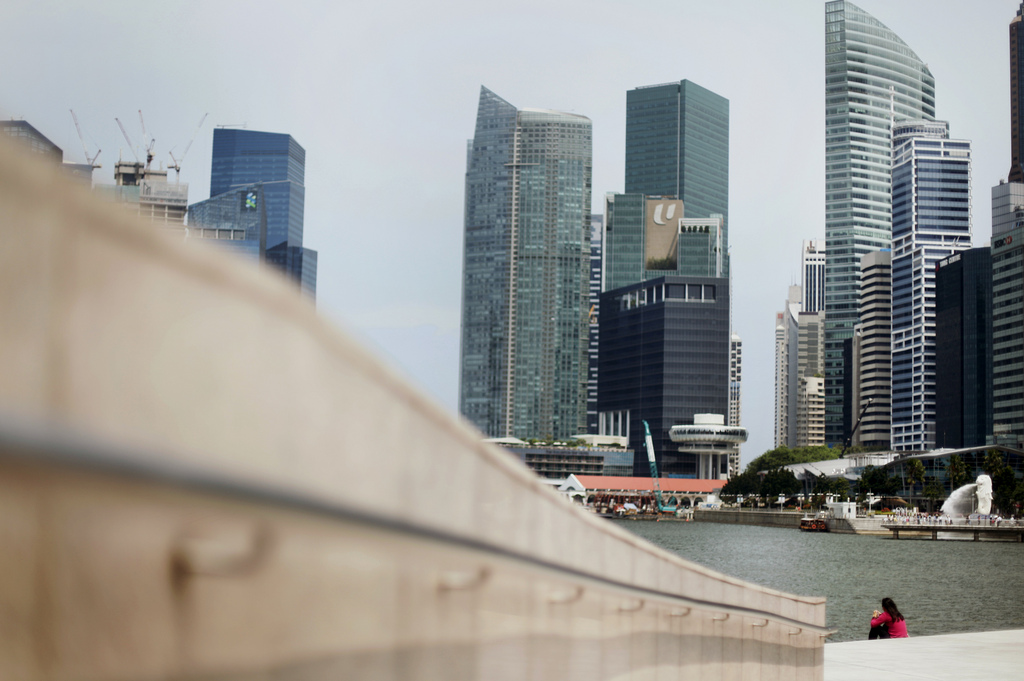UBS retains top spot among wealth managers in Asia

UBS, Switzerland’s largest bank, retained its position as the largest wealth manager in Asia last year as it attracted more funds from the region’s growing number of millionaires. Credit Suisse stayed third.
Among Switzerland’s private banks, Julius Baer ranked sixth and Pictet 14th, according to annual rankings released on Friday by London-based Private Banker International, which tracks the wealth management industry.
UBS increased its assets under management by 14% from 2012 to $245 billion (CHF231 billion). Citigroup, whom UBS ousted at the top in 2012, kept the runner-up spot with $238 billion, while Asian banks boosted their share of regional wealth assets to a record 13.2%, up from 11.5% in 2012.
Global banks have been vying with Asian firms to tap the burgeoning ranks of rich people in countries such as China and India, where economic growth is projected to exceed the global rate of expansion this year. The number of Asia-Pacific millionaires grew 17% last year, the most among six regions, according to Cap Gemini SA and Royal Bank of Canada (RBC).
Credit Suisse and HSBC maintained their positions at three and four, with Deutsche Bank’s private-banking arm in Asia replaced JPMorgan at five. JPMorgan, based in New York, slipped to seventh behind Julius Baer.
Total assets under management in Asia increased 18% in 2013 to a record $1.4 trillion, according to the study.
Early advantage
UBS, which kept its top ranking for a second year, hired 88 advisers this year to service rich Asian clients, said Kathryn Shih, head of the firm’s Asia-Pacific wealth-management business in April. The recruits, based in Hong Kong, boosted the number of client advisers in Asia to 1,120, the biggest pool since the bank started its operations in the region, she said.
UBS was market leader in the region for years until the financial crisis and tax evasion scandals pulled it back. It also faced increased competition from international rivals who arrived a bit later but didn’t waste any time once they landed.
Part of UBS’s success was being one of the first to arrive in Singapore and establishing a close relationship with the government.
When Singapore decided to invest heavily in the wealth management industry at the turn of the millennium, the government modelled itself on Switzerland and leant on UBS for know-how and support to set up the infrastructure and laws to make it work.
Faster Growth
Now, economic growth – which is helping to drive property and asset prices – is boosting wealth in the Asia-Pacific region, where the number of millionaires rose to 4.32 million in 2013, according to Cap Gemini and RBC’s World Wealth Report.
The global population of millionaires increased 15% in 2013 to 13.7 million, the June report showed.
However, that prosperity isn’t reaching everyone. One in five Hong Kong residents (about 1.3 million people) lives under the poverty line, according to a government report in September 2013. Li Ka-shing, Asia’s richest man, warned in June that economic polarisation and the cost of welfare dependence would stall growth.
About 16% of high net-worth individuals surveyed by Cap Gemini and RBC said they were allocating wealth, time or expertise to tackling income inequalities.
China’s $9.2 trillion economy is projected by the International Monetary Fund to grow 7.4% this year, while India may expand 5.6%. The world economy is estimated to grow 3.3%, according to the IMF.

In compliance with the JTI standards
More: SWI swissinfo.ch certified by the Journalism Trust Initiative











You can find an overview of ongoing debates with our journalists here . Please join us!
If you want to start a conversation about a topic raised in this article or want to report factual errors, email us at english@swissinfo.ch.